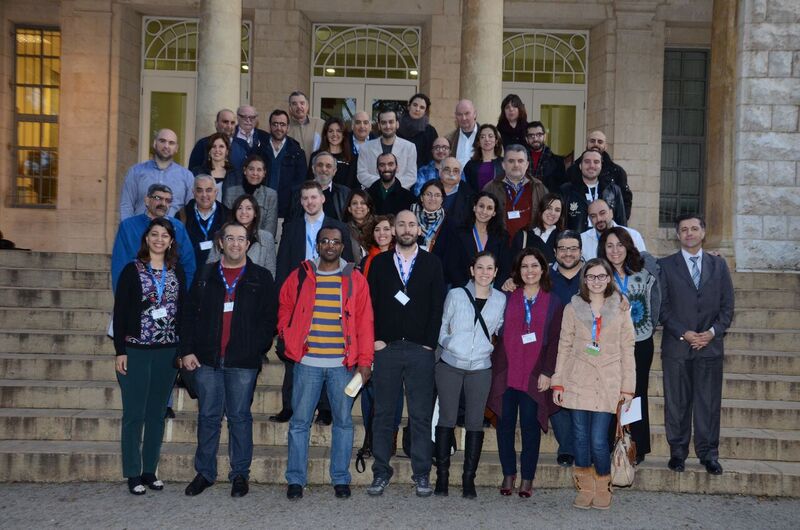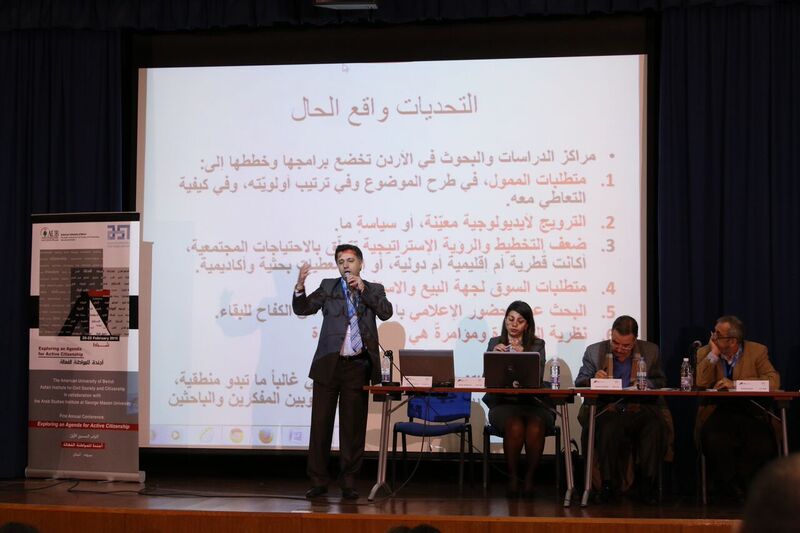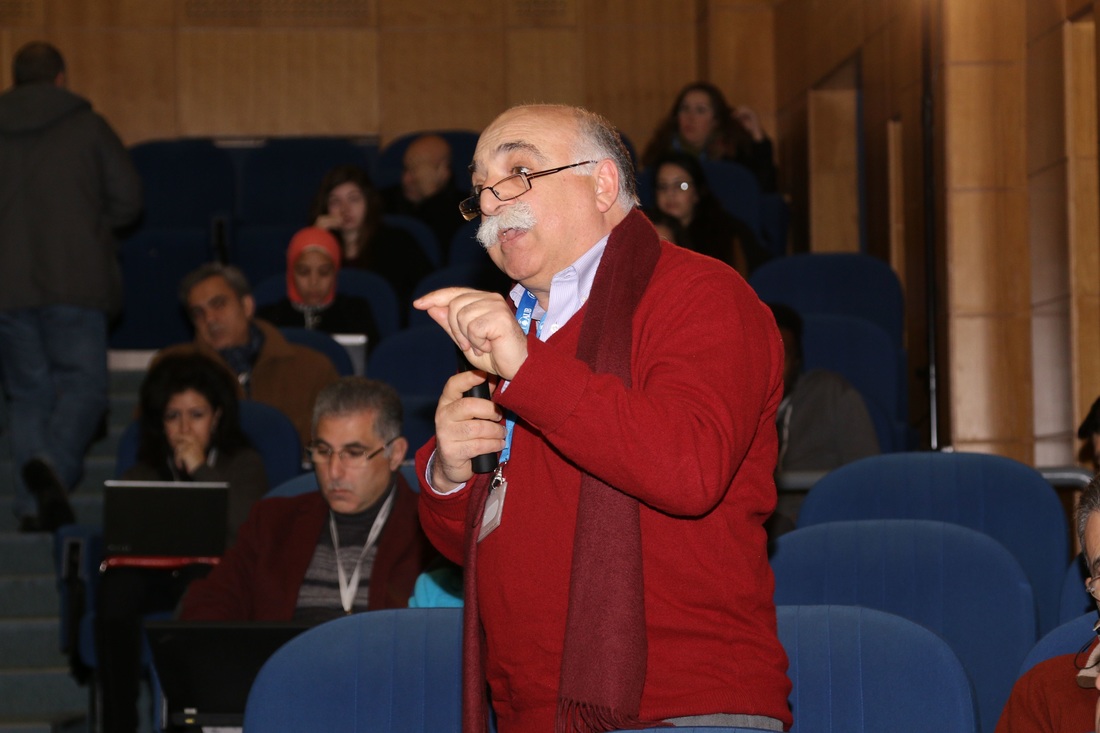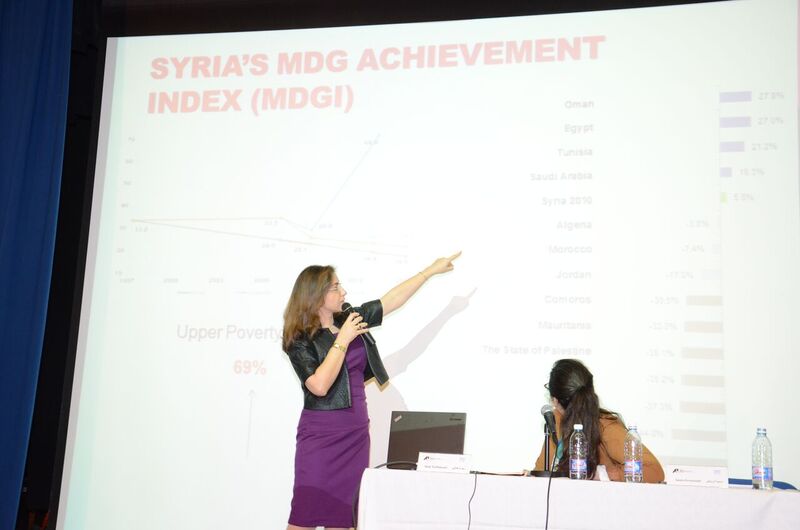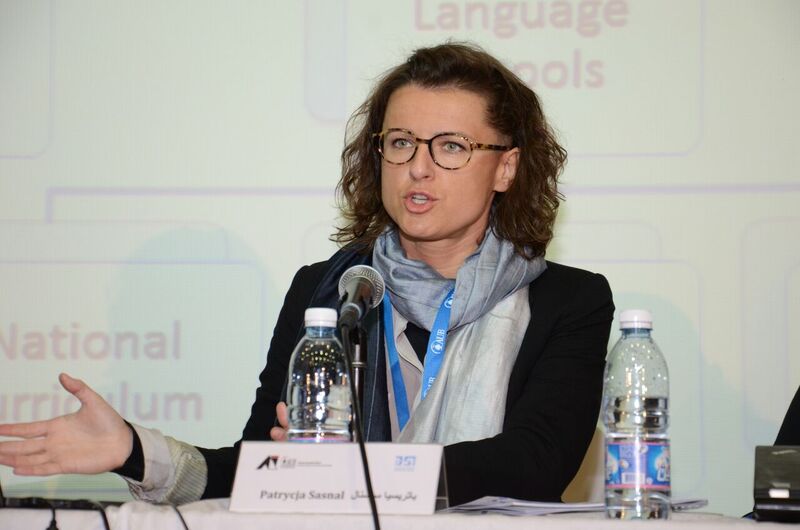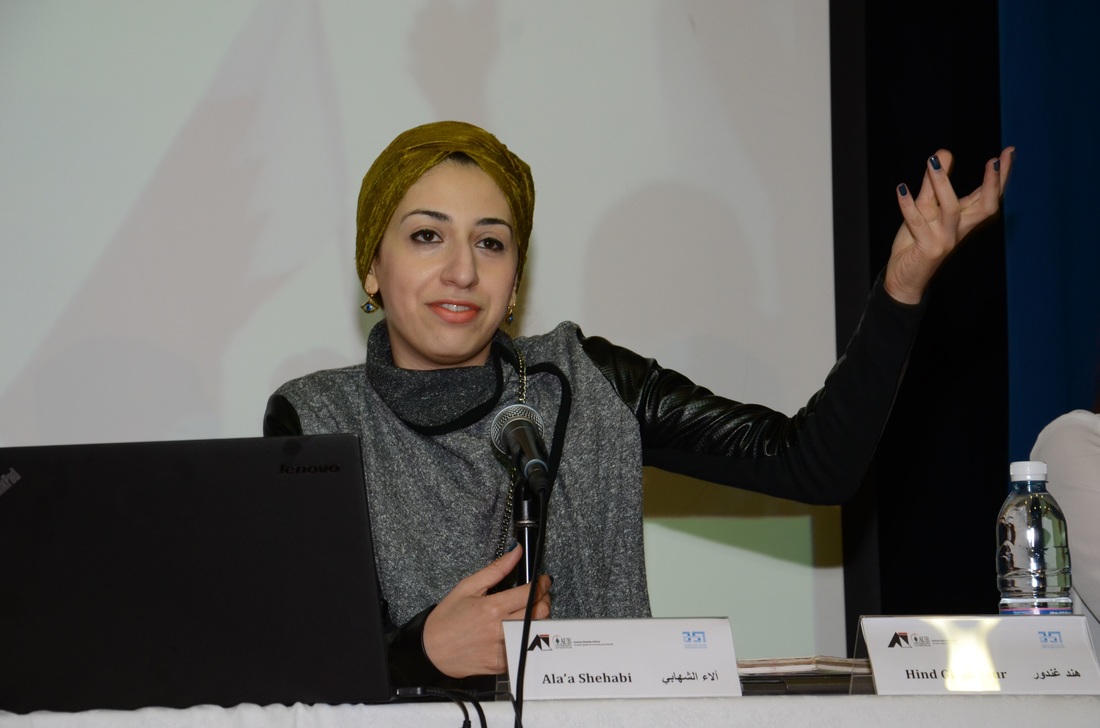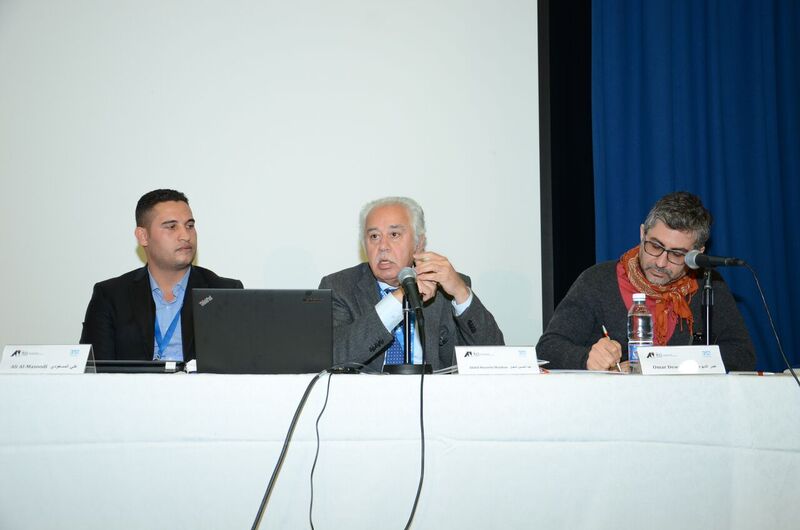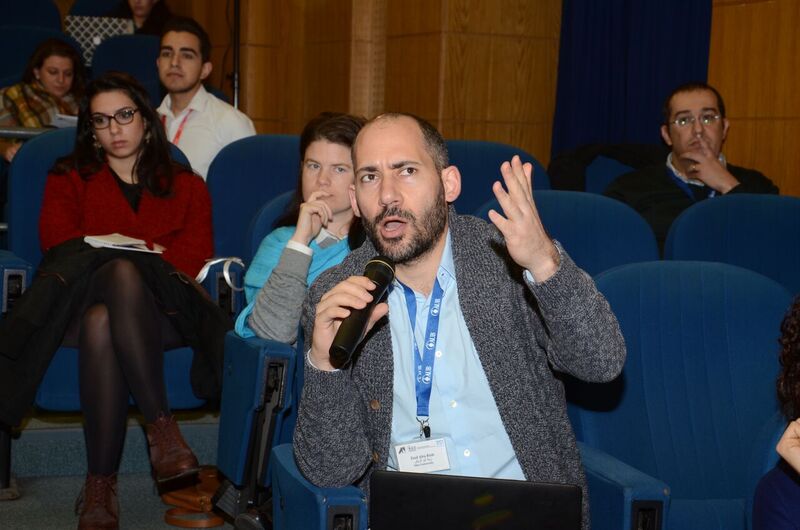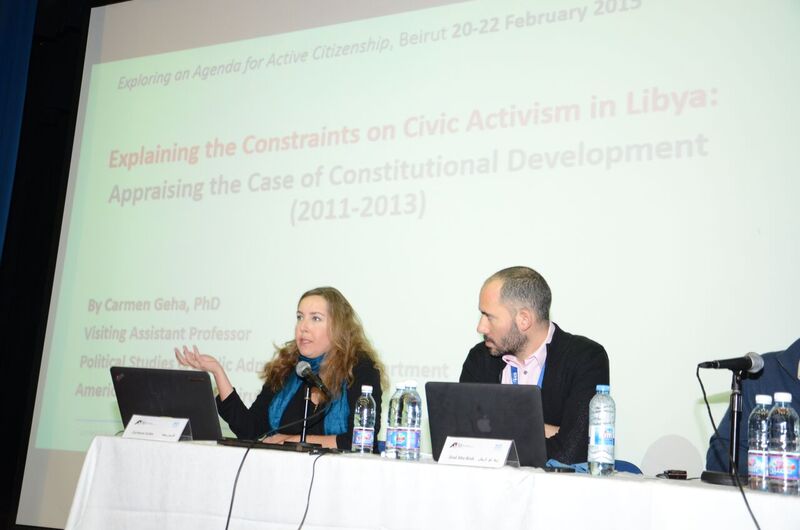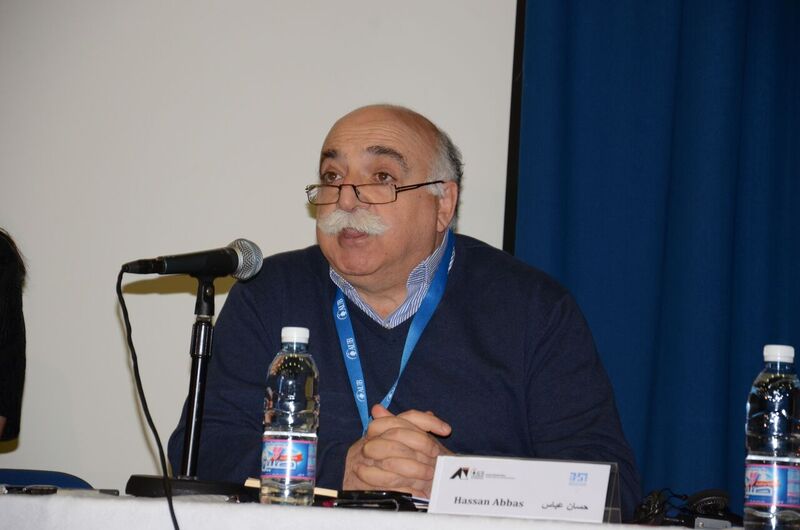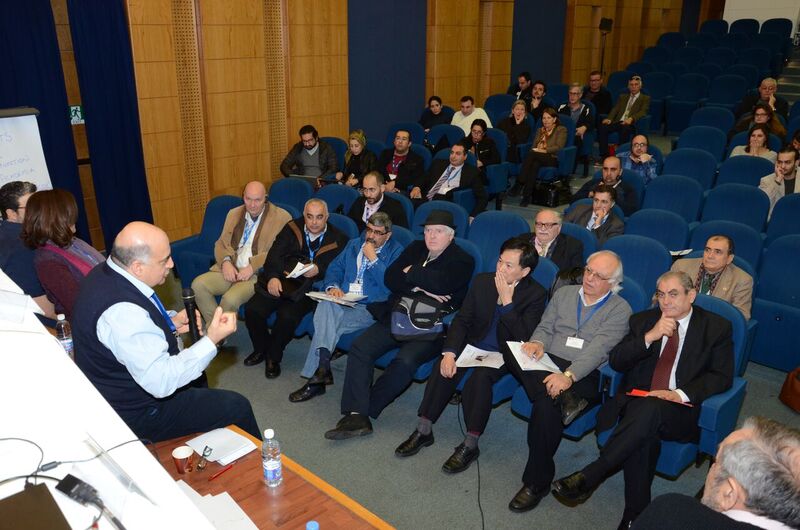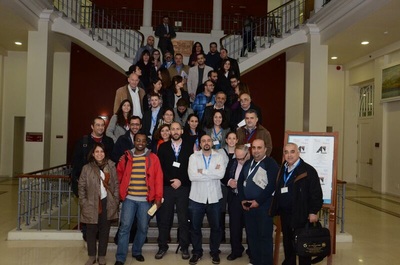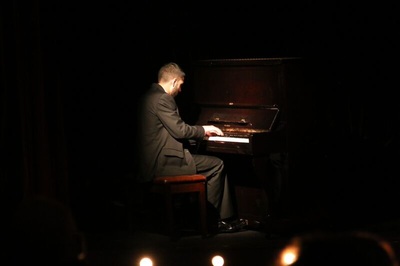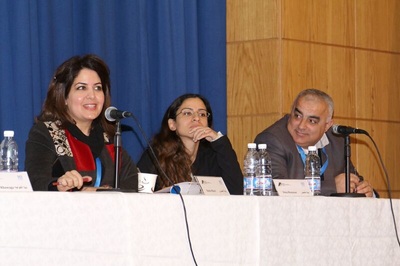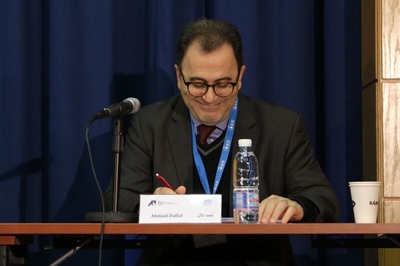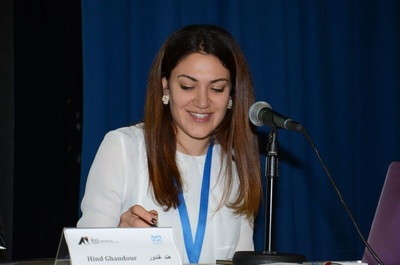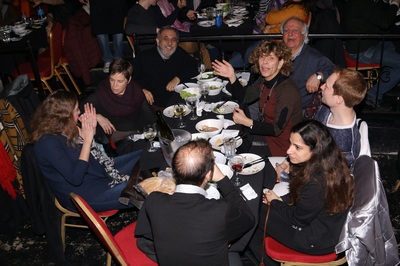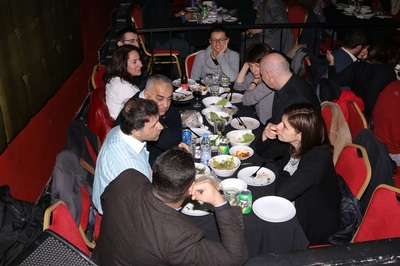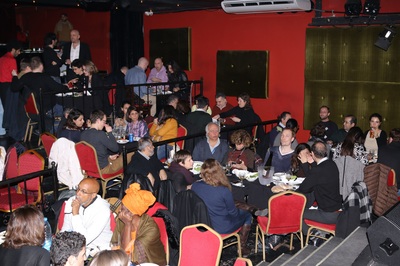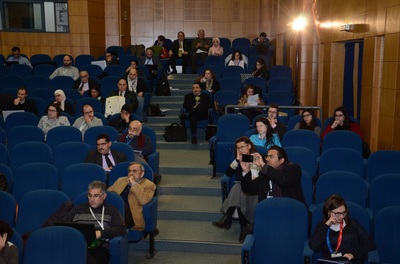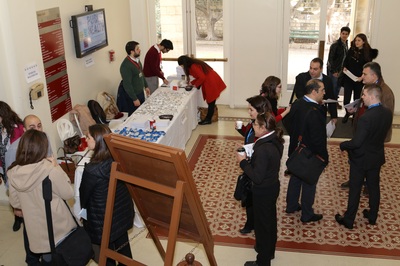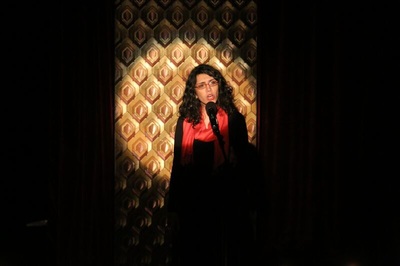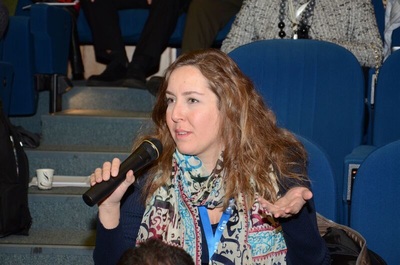- FAMA
- Researchers
-
Projects
- MESPI
- Knowledge Production Project >
-
Political Economy Project
>
- Development and the Uprisings
- Class Formations and Dynamics
- The Palestinian Economy: Fragmentation and Colonization
- Tunisia: A Political Economy in Transition
- Migrant States, Mobile Economies: Rethinking the Political in Contemporary Turkey
- Political Economy of the Middle East: Continuities & Discontinuities in Teaching & Research
- 2016 Political Economy Institute
- The Lebanon Project >
- The Palestine Project >
- The Civil Society Project >
- Middle East Media Project >
- The Egypt Project >
- Refugees and Migrants Project >
- Black-Palestinian Transnational Solidarities Project
- Initiatives
- Events
- Summer Institutes
- Internships
- Blog
Exploring an Agenda on Active CitizenshipFebruary 20, 2015 - February 22, 2015
Asfari Institute for Civil Society and Citizenship American University of Beirut Beirut, Lebanon The February 2015 conference commemorated the fourth anniversary of the revolts that began in Tunisia in the final days of 2010 and rapidly spread to nearly half the countries of the Arab region. The revolts provided a stellar example of the power of citizen engagement as millions of people took to the streets and toppled long-time authoritarian regimes or leaders, changing perceptions of the “Arab Street” for good. Four years later, where are those millions? How do we understand and assess their successes or failures in achieving their demands for freedom, dignity and social justice? Do we know enough about the historical roots of civil society activism in the region to ascribe cause-and-effect in regard to these events? What are the medium and long-term prospects for the future of citizenship participation in the public sphere, given the current realities? What are the factors that give rise to hope in some countries or open the pit of despair in others?
The conference aimed to shed light on the dynamics of civil society and citizen activism in the region, and to promote an understanding of the historical, political, economic and legal factors affecting this activism. It also aimed to gather collective wisdom as to the short-and long-term potential for continued citizen engagement, fill knowledge gaps, assist the Asfari Institute to develop its research agenda, and point the way to future programming. |
What is the Asfari Institute?Asfari Institute for Civil Society and Citizenship
American University of Beirut The Asfari Institute for Civil Society and Citizenship at AUB was established to support the development of an informed and engaged citizenry and to promote increased openness, transparency, and accountability at all levels of associational life in the Arab region. It interprets civil society and citizenship broadly and inclusively and aims to foster fruitful dialogue that builds knowledge on traditional and innovative forms of associational life and encourages an active and engaged citizenry across the region on the basis of freedom of expression and association. The Asfari Institute was launched with the Inaugural Conference New Spaces of Civil Society Activism in the Arab World on 23 May 2013. This second conference is the first in a planned series of annual conferences on topics of citizenship and civil society and is an integral element of the Asfari Institute’s interdependent program of evidence-based and policy-oriented research, education, and collaboration with like-minded partners in Arab and international civil society and academia. |
Highlights
|
Panel 1: Civil Society in the Arab Region: Concepts & Case Studies
Chair: Fateh Azzam, Asfari Institute for Civil Society and Citizenship, AUB Lina Suleiman, KTH Royal Institute for Technology, Sweden; and Michael Schultz, University of Gothenburg, Sweden "Theoretically ambitious and practically misused in the Middle East," Ammar Djeffal, Universite D’Alger, Algeria Towards a Maghribi civil society (Morocco, Tunisia, Algeria) Heba Al Nasser, Chatham House, United Kingdom and Mohammad Qasem Al-Hamad, Juman for Civil Society Empowerment, Jordan Redefining the civil society scene in Jordan |
|
Panel 2: Civil Society in the Arab Region: Conceps & Case Studies
Chair: Rania Masri, Asfari Institute for Civil Society and Citizenship, AUB Dina El-Khawaga, Arab Reform Initiative "Civil Society and Political Movements in Egypt: From Neglect to Stabilization and from Leadership to Stigmatization" Dina Mansour, The Arab Council for the Social Sciences "The Political Economy of Social Change: from the moral economy of the peasants to the “Arab Spring” in Egypt" Ayman Yousef, Arab American University, occupied Palestine "Framing the Discourse and Priorities of the Palestinian Youth Movement in the West Bank" Maha Damaj, AUB "Sharing Power or Continued Status Quo? The Trials and Tribulations of the Disability Rights Movement in Lebanon" |
|
Panel 3: Civil Society in the Arab Region; Concepts & Case Studies
Chair: Bassam Haddad, Arab Studies Institute, George Mason University Tariq Da’na, Birzeit University, occupied Palestine "The Structural Transformation of Palestinian Civil Society" Leila Hilal, New America Foundation, United States "Between Neglect and Interference: The Impact of Foreign Policies on the Development of [Arab] Civil Society: the Case of Syria" Salam Kawakibi, Arab Reform Initiative "The Past and Future of Syrian Civil Society" |
|
Panel 4: Citizenship in the Arab Region: Concepts & Case Studies
Chair: Sami Attallah, The Lebanese Center for Policy Studies Omneya Ragab, researcher and writer and Asmaa Naguib, Zyara "Egyptian Citizenship and Arab Solidarities: Changing Dynamics After January 25th" Patrycja Sasnal, Polish Institute of International Affairs and Jagiellonian University "Egypt Religion, Democracy and Women in Egyptian textbooks before and after 2011" Leila Kabalan and Mark Bracher, Issam Fares Institute for Public Policy and International Affairs, AUB "A Tale of Two Trade Unions: How contrasting historical legacies have dictated the roles and actions of trade union federations in post-revolutionary Tunisia and Egypt" |
|
Panel 5: Citizenship in the Arab Region: Concepts & Case Studies
Chair: Hind Ghandour, Swinburne University of Technology, Australia Ala’a Shehabi, University of Lund, Sweden "Framing and Claiming Citizenship in the GCC" Florence Borot, IRIS Sup – L'école des Relations Internationales de l'IRIS, France "Saudi Arabia and the Concept of Citizenship" |
|
Panel 6: Citizenship in the Arab Region: Concepts & Case Studies
Chair: Omar Dewachi, AUB Ali Al-Masoodi, Baghdad University "Mechanisms for Activating Citizenship in Iraq" Abdul Hussein Shaaban, author and human rights activist "Iraq Organic Citizenship: the Case of Iraq" Suzanne Hammad, International NGO Training and Research Center, United Kingdom; and Tamara Alkhas, British Council, Jordan "Empowering Women in Public and Political Life in the MENA region: Reflections on the potential (and limits) of action research as ethos, methodology and practice" |
|
Panel 7: Examinations from Different Lenses
Chair: Sami Ofeish, University of Balamand Marwan Al-Allan, University of Philadelphia "Lebanon The Arab Graphic Arts in the context of the current revolutions: a journey in the margins" Wael Gamal, Journalist and Researcher "Jordan The Arab Spring and the Economic Alternatives: Society organizing itself" Rima Majed, AUB "The Presence of Social Sciences in Arab Civil Society Organizations" |
|
Panel 8: The Rulers and the Ruled
Chair: Sbeih Sbeih, Birzeit University Mohamed Elagati, Arab Forum for Alternatives, Egypt "Post-Revolution: Civil society and the democratic transformation in Egypt" Carmen Geha, AUB "Explaining the Constraints on Civic Activism in Libya: Appraising the 2011-2013 Case of Constitutional Development" Ziad Abu Rish, Ohio University, United States "Beyond ‘Business as Usual’: Regime-Society relations in Jordan four years after 2011" |
|
Panel 9: The Rulers and the Ruled
Chair: Hassan Abbas, Syrian League for Citizenship Massoud Daher, Lebanese University "Focus on the Relationship between the Rulers and the Ruled in the Era of the Arab Uprisings" Samia Errazzouki, Center for Contemporary Arab Studies, Georgetown University, United States "Beyond the ‘Moroccan Exception’: Historicizing state and civil society relations in Morocco" Rim Turkmani, London School of Economics and Political Science, United Kingdom "The Role of Syrian Civil Society in Mediation and Peacemaking in Syria" |
|
Open Discussion: Elements for a Future Agenda
Facilitators Ziad Abdel Samad, Arab NGO Network for Development Fateh Azzam, Asfari Institute for Civil Society and Citizenship, AUB Bassam Haddad, Arab Studies Institute, George Mason University Rania Masri, Asfari Institute for Civil Society and Citizenship, AUB |
Gallery
- FAMA
- Researchers
-
Projects
- MESPI
- Knowledge Production Project >
-
Political Economy Project
>
- Development and the Uprisings
- Class Formations and Dynamics
- The Palestinian Economy: Fragmentation and Colonization
- Tunisia: A Political Economy in Transition
- Migrant States, Mobile Economies: Rethinking the Political in Contemporary Turkey
- Political Economy of the Middle East: Continuities & Discontinuities in Teaching & Research
- 2016 Political Economy Institute
- The Lebanon Project >
- The Palestine Project >
- The Civil Society Project >
- Middle East Media Project >
- The Egypt Project >
- Refugees and Migrants Project >
- Black-Palestinian Transnational Solidarities Project
- Initiatives
- Events
- Summer Institutes
- Internships
- Blog

